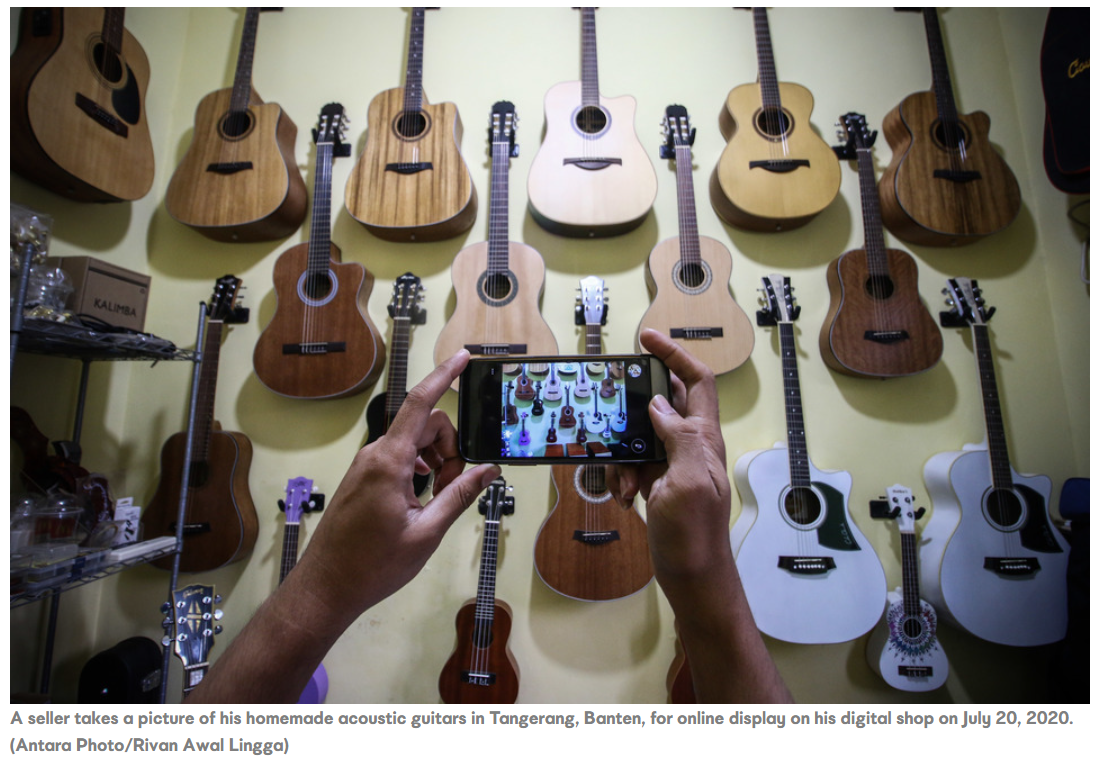Digital Trade to Lead Indonesia’s Covid-19 Recovery
Singapore. Prioritizing digital trade is crucial to Indonesia’s economic recovery and growth especially during the Covid-19 pandemic, according to experts from a recent webinar.
According to the E-Conomy SEA 2020 report compiled by Google, Temasek and Bain & Company, Indonesia’s digital economy value will reach $124 billion by 2030, the highest in the regional economic bloc ASEAN. The main driver is e-commerce, followed by transport and food delivery. Virtual classroom or the so-called ed-tech and health tech have particularly grown during the Covid-19 pandemic.
“The Covid-19 pandemic has been a blessing in disguise for the development of digital economy,” said Dr Rudy Salahuddin, a deputy for the Indonesian chief economic minister in charge of digital economy.
“The situation has brought many benefits for us by promoting more innovation, increasing inclusiveness, and producing efficiencies.”
Digital technologies such as blockchain, data analytics, and 5G mobile have enabled greater collaboration, expanded trade, and increased access to services.
“We all realize that the acceleration of digital transformation should be prioritized in our effort to recover from the Covid-19 pandemic,” Rudy said.
Despite the potential, the lack of ICT infrastructure is one barrier that impedes the digital economic growth in ASEAN and Indonesia.
“The biggest challenge for an archipelagic country like Indonesia is ensuring ICT to be evenly distributed and adopted,” Rudy said.
Micro, small and medium enterprises (MSMEs) form the backbone of the digital economy in ASEAN. Three quarters of MSMEs in the region consider the opportunities of digital integration but only 16 percent can fully harness digital technologies.
To support MSMEs, the Indonesian government has introduced several business enhancement programs, including the Proud of Indonesian Products Movement, a national movement that encourages citizens to buy local products; Pahlawan Digital, a digital rebranding for MSME products to boost competition; as well as QRIS, a standardized QR code for cashless transaction, Rudy said.
Furthermore, the government has allocated Rp 162 trillion to the MSMEs financial assistance program. Company-level initiatives have also accelerated the digitalisation process.
“Especially in pandemic times, a lot of companies, even in the food delivery business, have stepped up …even in the absence of government support,” said Dr Cassey Lee, a senior fellow and coordinator of regional economic studies program with ISEAS-Yusof Ishak Institute.
Huawei is one of them, having recently launched the incubator Spark program in August.
“We just announced a Spark program which will feed $100 million to start-ups in the region,” said Craig Burchell, Huawai Senior Vice President of Global Trade Affairs.
According to Huawei’s website, this three-year investment aims to “build a sustainable ecosystem for the [Asia Pacific] region”, focusing on Indonesia, the Philippines, Sri Lanka, and Vietnam – with the overarching aim of recruiting a total of 1,000 start-ups into the Spark accelerator program and shaping 100 of them into scale ups.
“The rural Spark program is all about connecting less developed regions,” said Burchell.
“Southeast Asia has enormous opportunities to lead digital trade for economic recovery by focusing on regional cooperation, technology for all, improving digital skills, investing in green and digital trade,” he added.
He spoke of digital documentation and ICT, and the need to collaborate on new rules for future digital trade ecosystems.
Currently, there is a patchwork of digital trade rules across the ASEAN countries as well as the broader Asia-Pacific region. Important policies such as data openness and privacy remain underdeveloped across ASEAN countries.
“It’s like a ‘digital noodle bowl’,” said Stephanie Honey, Deputy Executive Director and Lead Staffer NZ of the APEC Business Advisory Council,
While ASEAN and the Regional Comprehensive Economic Partnership (RCEP) are the largest free trade agreements in the Asia Pacific region, digital-only agreements are now starting to emerge, such as the DEPA (Digital Economy Partnership Agreement) and DEA (Digital Economy Agreement). These new FTAs deal with holistic, digital economy issues and cross-cutting issues such as data flows and new emerging technologies.
“I’m very optimistic about the potential for the region and broader Asia-Pacific to develop a more coherent approach to digital trade,” said Honey.
Source: https://jakartaglobe.id/tech/digital-trade-to-lead-indonesias-covid19-recovery


 Thailand
Thailand




